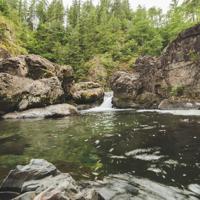Camping is an adventure that connects us to nature, allowing us to appreciate its beauty and tranquility. As we strive to preserve this experience for future generations, adopting sustainable practices becomes essential. Biodegradable wet wipes are one of the many small changes campers can make to minimize their environmental impact. Here, we’ll delve into what these wipes are and how they can be a helpful addition to your camping gear.
What Are Biodegradable Wet Wipes?
Biodegradable wet wipes are designed to decompose naturally over time. Unlike conventional wipes that may linger in the environment for years, these wipes break down more quickly and naturally, reducing pollution and waste. They are often made from natural fibers such as bamboo, viscose, or wood pulp, which can biodegrade much faster than synthetic materials.
Why Choose Biodegradable Wet Wipes?
Environmental Benefits
- Reduced Waste: Traditional wet wipes contribute significantly to landfill waste. Biodegradable options help combat this by decomposing naturally.
- Lesser Environmental Footprint: When breaking down, biodegradable wipes release fewer harmful chemicals and greenhouse gases.
Convenience for Campers
- Ease of Use: Keep personal hygiene simple and effective without needing extra water or washing facilities while out in the wilderness.
- Portability: Compact and easy to carry, these wipes fit conveniently into your backpack or camping gear.
What to Look for in Biodegradable Wet Wipes
When selecting biodegradable wet wipes, consider the following factors:
- Ingredients: Look for natural ingredients that are gentle on the skin.
- Biodegradation Rate: Check the packaging for information on how quickly the wipes will decompose.
- Certification: Ensure the product is certified by a reputable organization, such as the Forest Stewardship Council (FSC), for environmental claims.
Examples of Biodegradable Wet Wipes
Here are a few brands that provide biodegradable wipes, ensuring sustainability without compromising on quality:
- Natracare Cleansing Wipes: Known for their organic ingredients and certification by The Soil Association.
- ALOE Green Tea Wipes by YW: These wipes use plant-based fibers and offer a soothing, natural fragrance.
Considerations for Responsible Usage
While biodegradable wipes are a better option, responsibility still lies in proper disposal. Dispose of wipes in compost bins when possible, rather than tossing them on hiking trails or in natural bodies. This practice ensures that they break down efficiently without harming local ecosystems.
Research and Resources
For those interested in the impact of wet wipes on the environment, consider visiting the Environmental Protection Agency (EPA). They provide valuable insights into waste management and the benefits of biodegradable products.
Choosing biodegradable wet wipes is a small yet meaningful step toward sustainable camping. Though no solution is perfect, these wipes can help minimize environmental impact and promote healthier outdoor practices. Together, we can enjoy the beauty of nature while taking steps to preserve it for others to experience.




